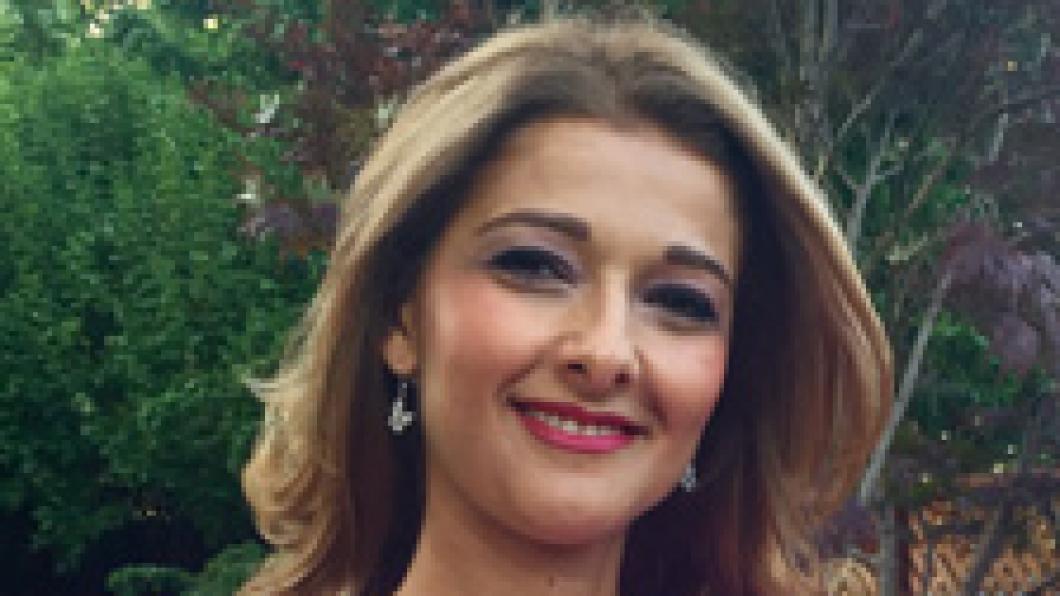
On November 21, Holland Bloorview's research institute, the Bloorview Research Institute, will host its 12th annual symposium focused on Canadian pediatric health research. Register for the symposium now.
Symposium co-host Manuela Comito is a family leader at Holland Bloorview and a family leader on the Research Family Engagement Committee (RFEC). Manuela and her family moved to Canada from Italy in 2006. She is mom to two girls, named Sofia (7) and Giulia (3). Sofia was born with a rare syndrome called Split Hand Foot Malformation (SHFM) and she uses prosthetic devices to walk. Sofia received services in Holland Bloorview's orthopedic clinic when she was 15 months old, and shortly following Manuela decided to join the family leadership program.
Tell us about Sofia.
Manuela: Sofia is a wonderful, joyful and very determined child. She is kind, generous and outgoing and she makes friends easily. She starts everything with such enthusiasm. She faces the little daily challenges always with a smile, which teaches me that all situations can be manageable by adapting to your goals.
Was it Sofia that inspired you to become a family leader?
When the journey with Sofia began, I had many questions. What is SHFM? What should I expect? When I was able to find answers to these questions, I was never completely satisfied because new questions would come to mind. Will my daughter’s condition improve? How, and when? What is next for her?
Four years ago when the RFEC was created, I saw it as the perfect match to my desire to know more. It was an incredible opportunity for me to be informed on the research at Holland Bloorview and research more broadly, which could make a difference for my daughter as well as other children with similar conditions. I knew right away I wanted to get involved.
What was it about research that interested you?
Some parts of daily life can be challenging, especially as children with disabilities face stigma in many areas of their lives - in education, friendship, society, and more. People who are not aware of disability are often unprepared, and sometimes unwilling, to understand and accommodate for the needs of these children.
I believe research can help children with disabilities and their families in many ways. From the creation of devices that improve mobility, or supporting people reaching their unique goals, to the discovery of new and effective treatments. The possibilities are limitless. Research can contribute to making society a better place. A society that is open to differences in abilities. An inclusive society that affords the opportunities to achieve personal fulfillment. A society of sharing where differences are seen as richness and not as a limitation.
As co-host for the 2017 research symposium, what would you say makes the collaboration between families and researchers most impactful? What do you see as the future for research?
Though I began my role as a family leader wanting to be more informed on research, I see now I also can make a difference. I can help make things happen.
Families and researchers are complementary to each other and our teamwork makes the science meaningful and impactful. As families we know our lived experiences, the struggles, triumphs, dreams and aspirations of our children, and we can help partner and inform research. The lived experiences of families can inspire researchers to explore new ideas and take risks. This powerful connection between families and researchers means we can support kids on their unique journeys and help all children reach their goals and happiness.